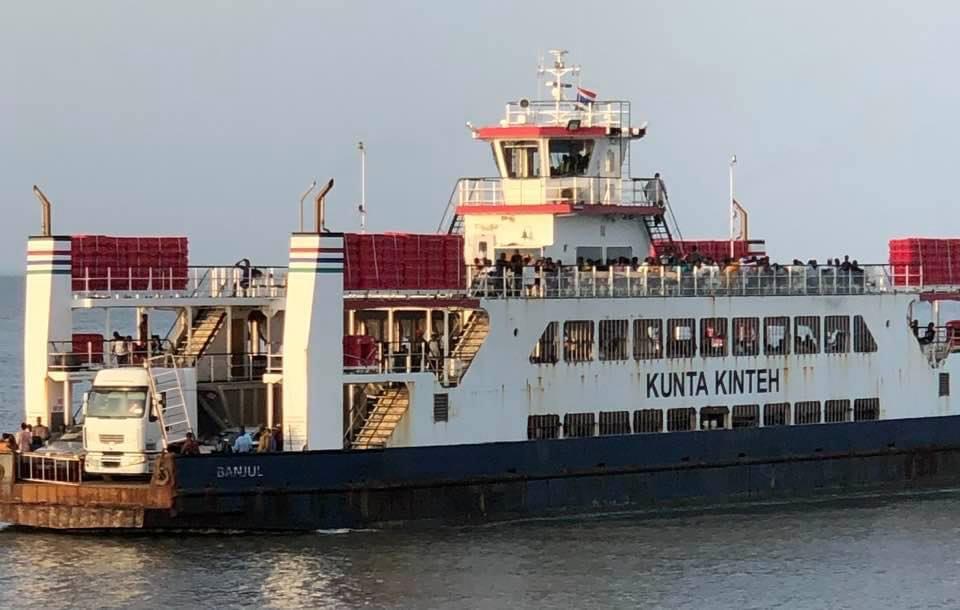By Ismailah Sonko

Pa Dawda Samyang, the director of operation at the Gambia Ferry Services (GFS) has said that his department lost 80% of the revenue as a result of the outbreak of the covid-19 pandemic in the country.
The Banjul-Barra crossing point is the busiest and most popular crossing points in The Gambia. Ferries plying through this point serve more than 20,000 people daily. “We have lost almost all our customers to either restrictions or lack of economic activity in some other areas, we didn’t have the opportunity to collect revenue, but we now head to the peak of our Collections,” he said.
Sanyang said the impact of covid-19 on the operation of ferries was very severe because there was a time when the ferries were operating on a very limited schedules due to the restrictions of pandemic. It became hard for them to meet their revenue targets.
“We were been subsidized to enable us pay salaries for 3 months by an external source, customers stopped coming to the ferry because they also had nothing to do because of the pandemic and our work is dependent on the economic activities of the country,” he explained.
Mr. Sanyang said if there is a slowdown in the economic activities obviously the ferries will also face the same problem because they do not see the customers that are supposed to engage their services for the capacity that we supply. So, they found it difficult to operate in that situation.
“The ferry service was even facing challenges in buying fuel because they acquire fuel through a supplier. Now, getting the fuel was not the problem but there was no money to buy the fuel. So, the ferries were lying idle in the water,” he said.
Now that the restrictions are lifted, the ferries are busy and now there is activity, work is going on and all the ferries are engaged since in the morning. “Revenue is the reason why the ferries service is operating and the higher the activity, the more revenue we generate, and we are seeing the increase in our revenue collection after the peak period of the pandemic,” he said.
Mariama Sarr, a vendor at the Banjul Ferry terminal also said that the covid-19 pandemic has seriously affected her daily business at the ferry terminal because the customers that normally use the crossing point were not coming as expected. Her daily earning from the business drastically dropped from 50 percent down to 10 percent which is not compared to what she gets before the covid-19 pandemic.
During the state of the emergency in the country, vendors like Mariama were asked to stay home in order combat the spread of the virus. Ebrima Jallow, a bitter cola seller at the ferry terminal also said the pandemic has affected his business because the customers were not showing up at the ferry. There was a complete halt to the traffic.
“The money I got from my business is the money I used for feeding, clothing, to pay rent and sent some to my family at back home for the family use but during the pandemic I did not send any money to the family because of the economic impact of the covid-19,” he said.
Malang Gassama, a passenger crossing from Banjul to Barra has said covid-19 pandemic has affected his movement to run his petty trading from Badibou and Banjul because he comes to Banjul to buy some of the basic commodities that he resell in his shop.
“But due to the covid19 pandemic in the country, my movement was very limited, and my income had seriously reduced,” he said. This Banjul-Barra crossing point is one of The Gambia’s vital economic lifelines and an essential river crossing point to Dakar, Senegal, and the north bank of the country. Many West Africans who travel to The Gambia by land mostly pass through this point to enter the capital city and then proceed to the Kanifing Municipality and West Coast Region.
The entry of several thousand people to the country through this place provides economical support to the country and encourage many business people to invest in Banjul. Ferries ply between Banjul and Barra for approximately 35 minutes.

